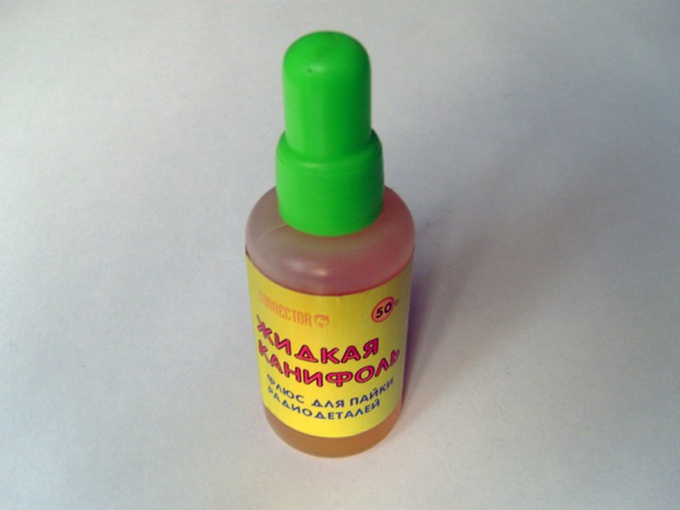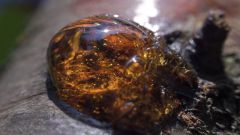An alcoholic solution of rosin
The main function of rosin when soldering is to protect metal surfaces from oxidation. A solution of rosin in ethyl alcohol better flow on the metal surface than the molten resin, thereby soldering becomes more economical, and the spay cleaner. Resin in solution is applied to the cleaned metal surface before warming up the soldering, which in turn further inhibits oxidation of these surfaces. A solution of rosin in ethyl alcohol least toxic in comparison with a solution in acetone, so it finds greatest use in engineering.
Obtaining rosin
If necessary, you can get rosin on their own. As raw materials suitable oleoresin fir or pine. Take an old ceramic Cup and wrap the inner surface of the aluminum foil. Separately in a metal pot out of canned melt the turpentine, make it boil. Float on the surface of the debris flip with a metal spoon. At the end of the boil quickly, drain the liquid into a Cup wrapped in foil. Wait until the resin has cooled, shake it out of the Cup and peel off the foil. This process is flammable, to carry out the work needed outdoors. During the dry distillation of gum, turpentine stands out vapors which are toxic to breathe them in is impossible. For the same reason you cannot use the resin for soldering.
Production of liquid rosin
Liquid resin you can buy. For example, it is sold under the trademark LTI-120. But you can make it on their own. Take a small glass jar with a tightly fitted stopper. Fill it one-third comminuted into powder rosin and pour ethyl alcohol. Alcohol can take both medical and hydrolysis, but certainly 96%. Tightly close the vessel stopper. Preparation of liquid rosin soldering precision is not required, and all work can be carried out "by eye". With occasional stirring and room temperature, the dissolving process will take 2-3 days. At the bottom of the vessel may remain undissolved precipitate is rubbish. Pour the solution into a clean vial without disturbing the sediment. It is best to pour the liquid resin into the bubbles with a brush on the tube, this brush is convenient to apply the flux on the surface.
Alcohol rosin varnish
Rosin is a plant resin. Solutions of plant resins in alcohol are called spirit varnishes. Liquid resin as a varnish is used for coating wooden products, making them water resistant and non-conductive. A frozen layer of rosin is quite acid-resistant, which gives the opportunity to apply rosin varnishes etching of printed circuit boards, facilitating their further soldering. The disadvantage of alcohol-rosin varnish is some residual stickiness of the surface after it dries, especially when heated. But the drawback is some of the wizard can turn into an advantage, thus creating an anti-slip coating.

